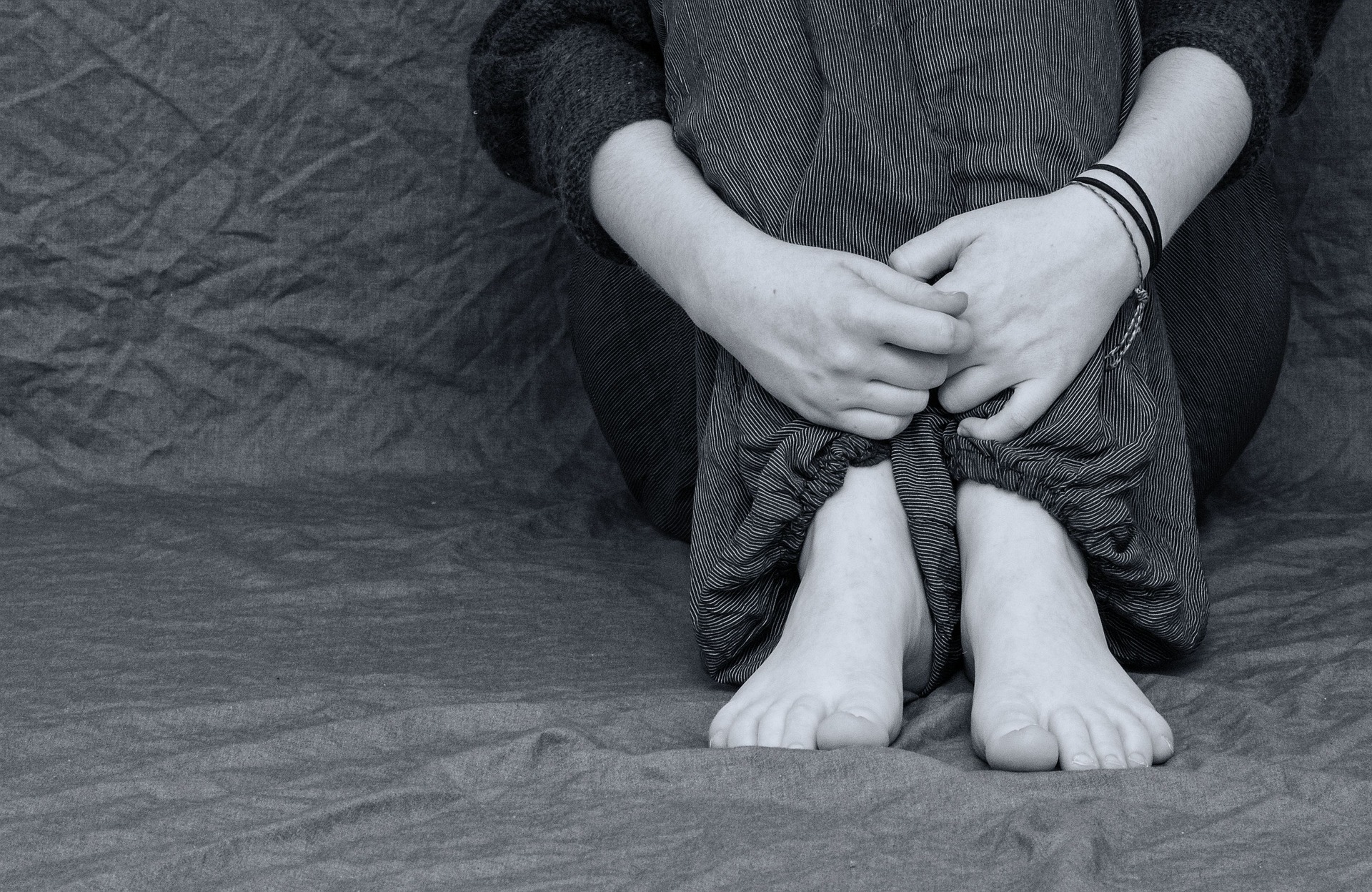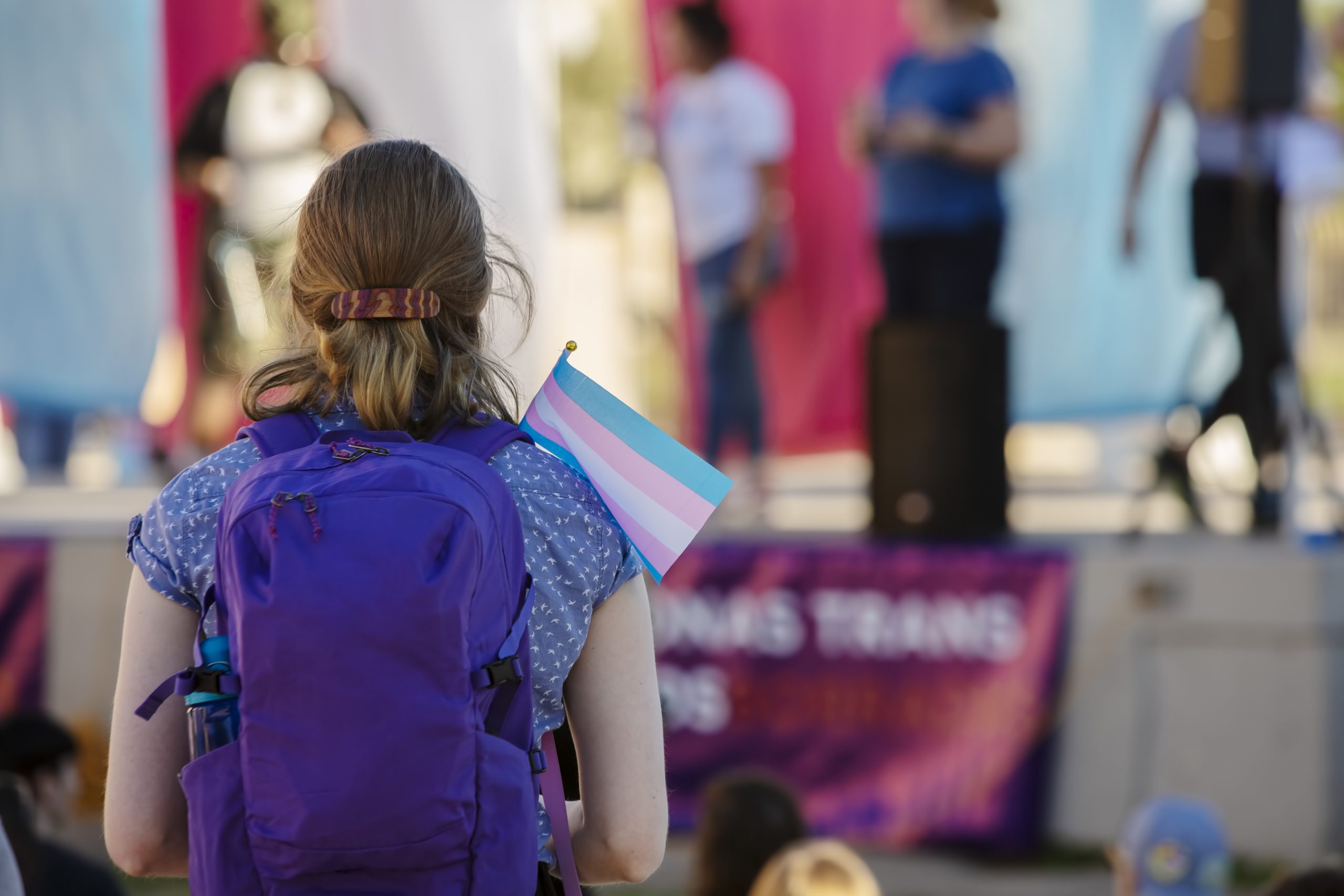Abortion rights, women of color, and LGBTQIA+ people are under attack. Pledge to join us in fighting for gender justice.
ReThinking Culture & Preventing Sexual Violence, Pt. II

 Tahir Anderson Duckett is an attorney and advocate based in Washington, D.C. He is the founder and Executive Director of ReThink, an organization dedicated to preventing sexual violence by engaging men and boys in rethinking the cultural norms and behaviors that promote sexual assault. This conversation has been split into two parts; for educators and activists interested in an overview of what ReThink does and how they help school communities build cultures of consent, click here.
Tahir Anderson Duckett is an attorney and advocate based in Washington, D.C. He is the founder and Executive Director of ReThink, an organization dedicated to preventing sexual violence by engaging men and boys in rethinking the cultural norms and behaviors that promote sexual assault. This conversation has been split into two parts; for educators and activists interested in an overview of what ReThink does and how they help school communities build cultures of consent, click here.
Sabrina Joy Stevens: In your work, have you encountered any skepticism around the idea that our culture promotes rape from educators or other adults?
Tahir Anderson Duckett: So my approach is, when I’m working with educators and other adults, I actually try not to use the phrase “rape culture,” just because I find that it has a tendency to bring people into a space that feels too loaded. People may be opposed to that language, even if they don’t fundamentally disagree with what it means. For example, there are very few adults who believe that the way in which sex is depicted in Hollywood is totally healthy. From the left to the right and everyone in between, nobody is looking at [sexual interactions in our mass media] and saying, “That’s what I want my kids to be modeling!” So if you start there, and then you start to talk about some of the specific ways in which the conventional ways in which we talk about sex is unhealthy, you tend to find a lot of common ground. When we look at storylines and messages about kids going out, getting really drunk, and having sex, there’s not much pushback against the idea that that’s not healthy. The idea that we shouldn’t use this kind of violent, dehumanizing language about women, there’s a lot of common ground around these ideas.
Now, that’s not to say that things don’t get complicated sometimes. Some of what we need to do is to give kids the language to say ‘yes’ as well as to say ‘no,’ and to understand what ‘yes’ looks like, as opposed to ‘no.’ And that certainly [implies] that a young person might say, “Yes, this is something that I want.” That can be a bit dicey for some people. But what I’ve found is that once you get into the conversation, people loosen up. Broaching the conversation can be challenging, but people agree that this has to be addressed. So once you’re into it, people expect us to talk about sex. They expect us to talk about yes versus no, and breaking down some of these scenarios.
Every so often, we get pushback along the lines of, “Well, maybe women should do this,” or “Maybe women should do x, y and z,” or “Well, women also need to…” It’s “Whataboutism,” like “Well, what about if a woman gets drunk and goes to the fraternity house? Doesn’t she know what’s going to happen?” And we have to break down some of those myths among adults, because they were raised with preconceived notions that revolve around rape myths and victim-blaming. But I’ve found that most people can start to figure it out if you give them good analogies, and point out all the other situations in which they wouldn’t tolerate victim-blaming or violations of consent.
SJS: And what do you do if or when you encounter people who, once you start breaking down what all this stuff means, react with something like, “Well wait a minute. Aren’t we taking this too far?” and pushing back against the idea that consent truly must be mandatory?
TAD: Right. Well, if we go with the example of people who approach this from the mindset that, “Well, we’ve got to teach our girls that they should dress modestly, etc.,” there are quite a few things that we can do. I tend to rely more on practicality than ideology with these folks. I might not necessarily convince them of what I believe, that they shouldn’t be restricting women’s freedom. But I can convince them that the other way doesn’t work. We’ve been pleading with women for eons to dress a certain way, and it doesn’t make a difference. I can list hundreds and thousands of scenarios where what a woman was wearing didn’t make a difference. And I can remind them that if that’s the approach, then what we’re really saying is, “OK, so then the girl down the street who didn’t get that message, does she deserve to be treated that way?” That’s what that’s saying. And we know that what does work is if we teach boys how to understand the difference between yes and no. How to listen for the difference between yes and no. How to be in touch with their own emotions enough to respect the difference between yes and no, and that by doing it that way, we make the boys healthier, and we make everybody around them safer.

SJS: And also, men have as much responsibility and self control as everyone else! So what if someone is walking down the street naked? Their clothes (or lack thereof) don’t control you. Their clothes are not responsible for your behavior; you’re the only one responsible for your behavior. If you’re able to control yourself when you see candy in the check-out aisle, just out there “asking for it,” you should be able to control yourself around a human, too!
TAD: Right! And if you personalize it like that, and say, “Well, if a woman is walking down the street naked, would you rape her?” The answer is immediately, “No! But other people, y’know…” But you can remind people that what we’re really talking about here is the standard to which everyone should hold themselves when it comes to what consent looks like and sounds like. Even if you have this idea about what other folks may or may not be doing, the most important part is to stay focused on what matters. “Is there affirmative and enthusiastic consent? If yes, then OK. If no, then just no.” At the very least, we need to hold each other to that standard. If all else fails, I can always pull them back to, “Well let’s stick with what we know: consent is this, and anything short of that is not OK. That’s what we have to hold each other, and the kids we’re working with, accountable to.”
SJS: Right. What other approaches do you take to help skeptical young people or adults understand why this is such an important issue to proactively address in their schools and communities?
TAD: Obviously, I want people to do this work for the right reasons. I want them to be respectful people who learn how not to commit sexual violence because it hurts people and hurts them. But please believe, if I go into talk to a bunch of middle school or high school athletes, I also tell them, “This is the kind of stuff that could make you lose your scholarship and could make you go to jail. Let’s be very clear: If you don’t learn this stuff, you are exposing yourself to significant risks.” Same for school leaders and other adults; they should be doing this work for the right reasons, but they also need to understand that not addressing sexual harassment and violence exposes them to risks like lawsuits, PR disasters, and so on.
SJS: I think one hard thing that gives some folks pause around this issue is that once people learn what consent really means, they may get defensive because they recognize that some of their past encounters, or behaviors they’ve excused among students, don’t meet that standard. Some of the past behavior that they wrote off as “boys will be boys” or being “young and dumb” was actually harassment or assault, or at a minimum didn’t reflect enthusiastic consent. Or if they were on the receiving end, they’re suddenly faced with the prospect of being labeled as a “victim,” and that makes them uncomfortable.
TAD: Yes. I think that’s why the tone of it matters so much. The calling in, as opposed to calling out. Because yeah, this work interrogates all of us. It interrogates me—that’s why I do this work. It’s why it’s so important to break down myths like the idea that a rapist is only an evil sociopath, and is irredeemable. There are no “Irredeemables,” I don’t think. I don’t think anyone is irredeemable. I think that if there is going to be any hope for significant change here, people have to be able to grapple with, “Well, yeah. Maybe I’ve hurt someone in the past, and that’s something I need to deal with. But at the very least, I’m going to make sure that the kids I work with don’t make the same mistakes.” And we do that in so many other areas of life, right?
SJS: Yes, it’s so true! We do that all the time for kids. “You don’t have to put your hand on the stove to know it’s hot. I already did that, and I’m here to tell you, it hurts! Don’t do it!”
TAD: Exactly. We do that in so many parts of our lives; we teach kids not to make the same mistakes we’ve made in the past, and this has got to be one that we address. But we can’t do that if the only understanding we have of sexual harassment, assault, and rape is what we’ve seen on Law and Order: SVU.




